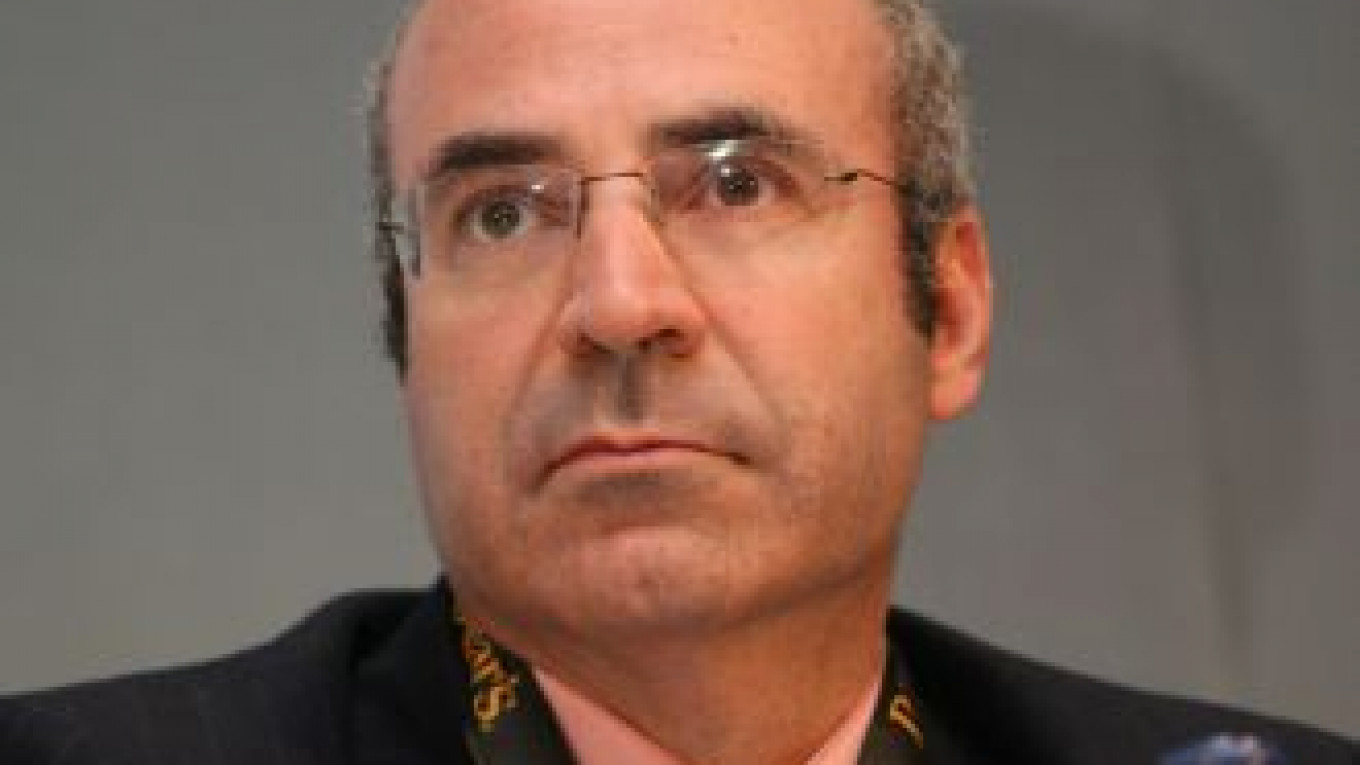Corrections appended
Investigators are ready to take their case against Hermitage Capital CEO Bill Browder to court — but the U.K. refuses to even notify the British citizen, let alone extradite him.
Browder, a co-founder of the Hermitage Capital investment fund, is a suspect in a 500 million ruble ($15 million) tax case that landed lawyer Sergei Magnitsky in jail in 2008.
The case was launched against Browder immediately after his fund accused Russian police officers of working with criminals to steal his companies.
Magnitsky was added to the case eight months later and jailed immediately after he revealed that the theft of the companies was part of a serial tax fraud totaling over $337 million carried out by the same people. He died after about a year in custody.
The presidential human rights council said Magnitsky was handcuffed and beaten and left to die while awaiting emergency medical care. The Interior Ministry report says "heart failure with no sign of violence."
Last year, prosecutors reopened the Magnitsky case under an order by then-Prosecutor General Viktor Grin.
Hermitage has said the case was reopened three days after the U.S. State Department announced that Grin, an official associated with Magnitsky's death, would be denied entry to the United States.
For refusing to notify Browder, Britain has cited the European Convention on Mutual Legal Assistance, which allows a sovereign nation to deny assistance that could jeopardize national security.
The Russian Interior Ministry said Tuesday that the case would go to court, regardless of what Britain thinks.
The British denial, however, "allows the defense to say its rights are violated," the ministry said in a statement. "It allows Browder … to tell the whole world about the injustice being committed in the Russian law enforcement system."
Last week, Hermitage Capital released a video accusing Interior Ministry investigators Pavel Karpov and Artyom Kuznetsov, who arrested Magnitsky, of having ties to an organized crime syndicate led by Dmitry Klyuyev, owner of Universal Savings Bank.
The U.S. Senate is currently considering a bill to freeze the assets of, and deny U.S. entry to, Russian officials believed to have fabricated charges to incarcerate Magnitsky.
Three more senior officials have been fired from the Interior Ministry in what is seen as a continuation of the reshuffle begun by newly appointed minister Vladimir Kolokoltsev.
Long-time police spokesman General Valery Gribakin, who worked alongside former minister Rashid Nurgaliyev, was sacked from his post, Interfax reported, citing the presidential press service.
According to Russian law, it is the president who officially fires and appoints police officials, regardless of their rank.
Along with Gribakin, Nikolai Ivanov, the head of the metro police, and ministry chief assistant Viktor Kamertsel were also dismissed, the presidential press service said Tuesday.
Corrections: An earlier version of this article incorrectly stated that Magnitsky was jailed over a $230 million tax case. Two hundred thirty million dollars is what Magnitsky accused tax and police officials of embezzling before he was arrested.
An earlier version of this article also misstated the first name of one of the Interior Ministry officials who arrested Magnitsky. His name is Artyom Kuznetsov, not Anatoly.
A Message from The Moscow Times:
Dear readers,
We are facing unprecedented challenges. Russia's Prosecutor General's Office has designated The Moscow Times as an "undesirable" organization, criminalizing our work and putting our staff at risk of prosecution. This follows our earlier unjust labeling as a "foreign agent."
These actions are direct attempts to silence independent journalism in Russia. The authorities claim our work "discredits the decisions of the Russian leadership." We see things differently: we strive to provide accurate, unbiased reporting on Russia.
We, the journalists of The Moscow Times, refuse to be silenced. But to continue our work, we need your help.
Your support, no matter how small, makes a world of difference. If you can, please support us monthly starting from just $2. It's quick to set up, and every contribution makes a significant impact.
By supporting The Moscow Times, you're defending open, independent journalism in the face of repression. Thank you for standing with us.
Remind me later.






